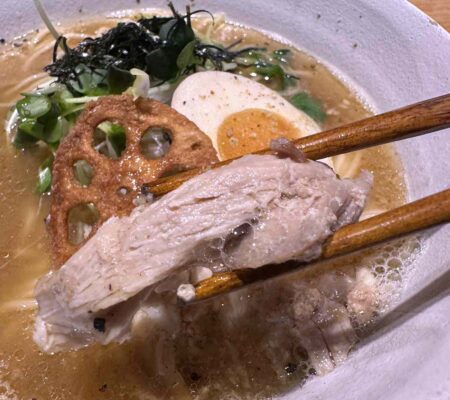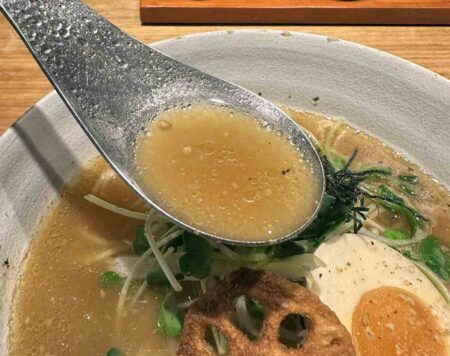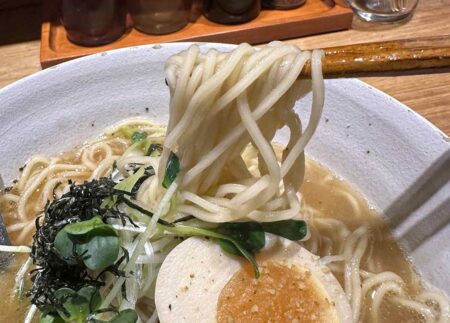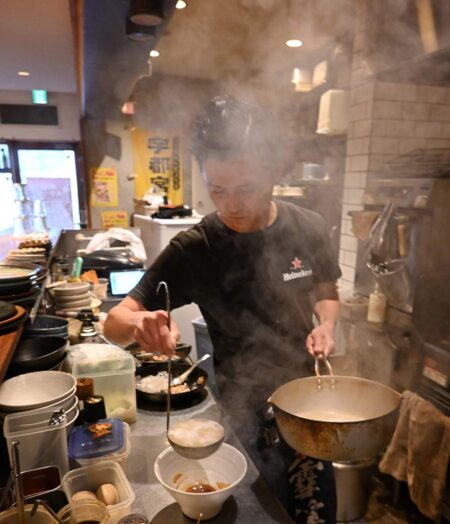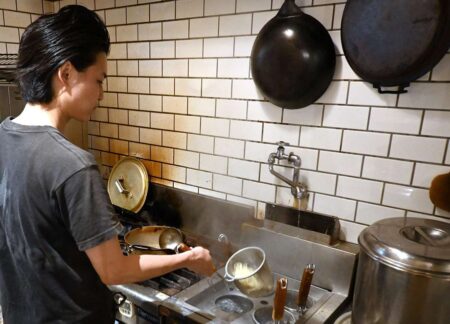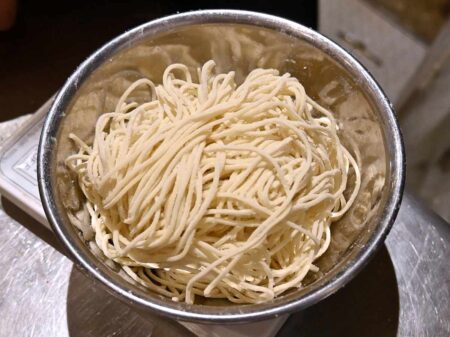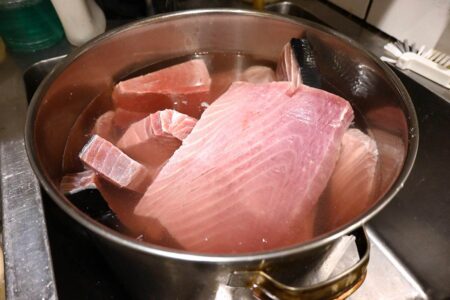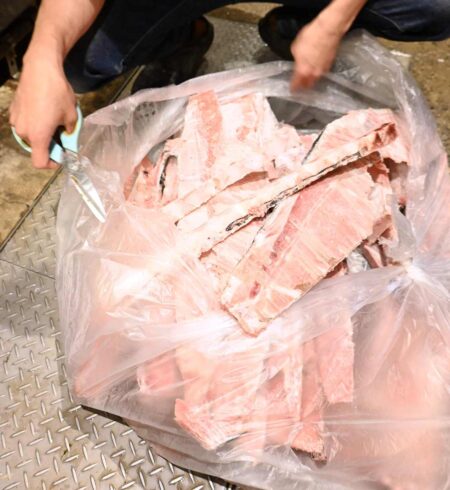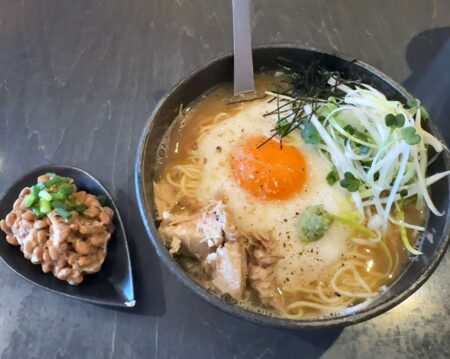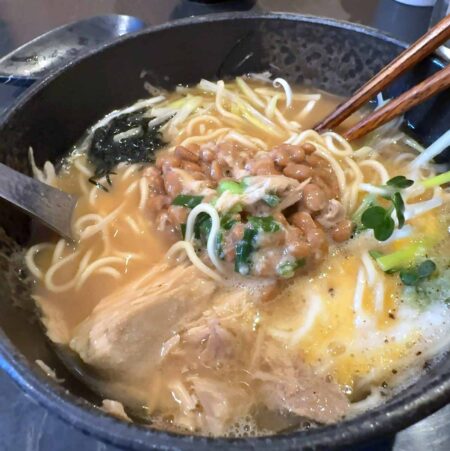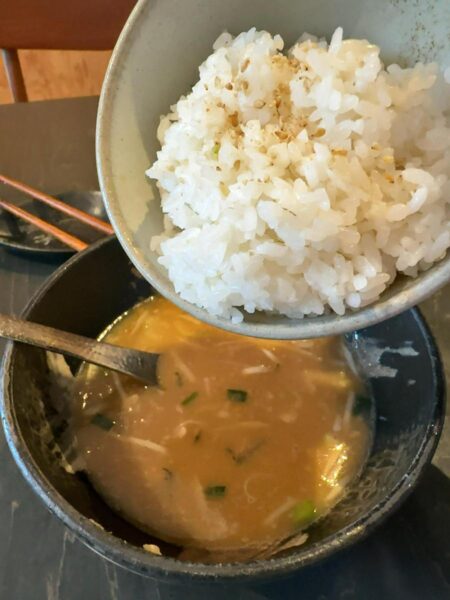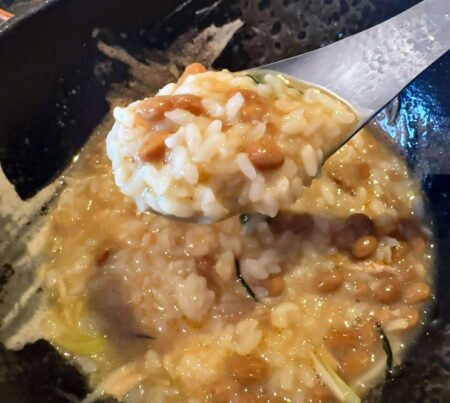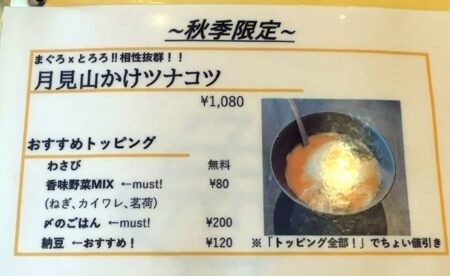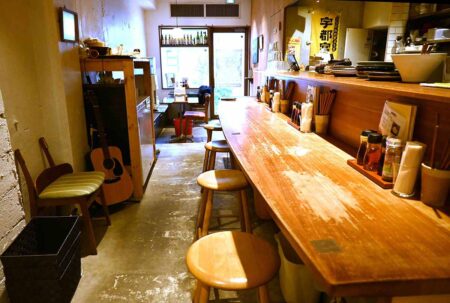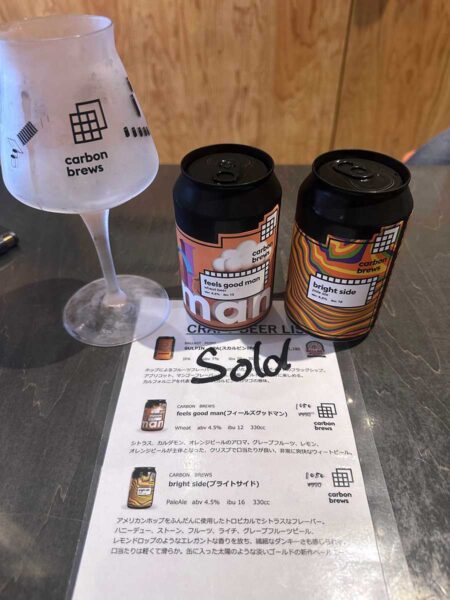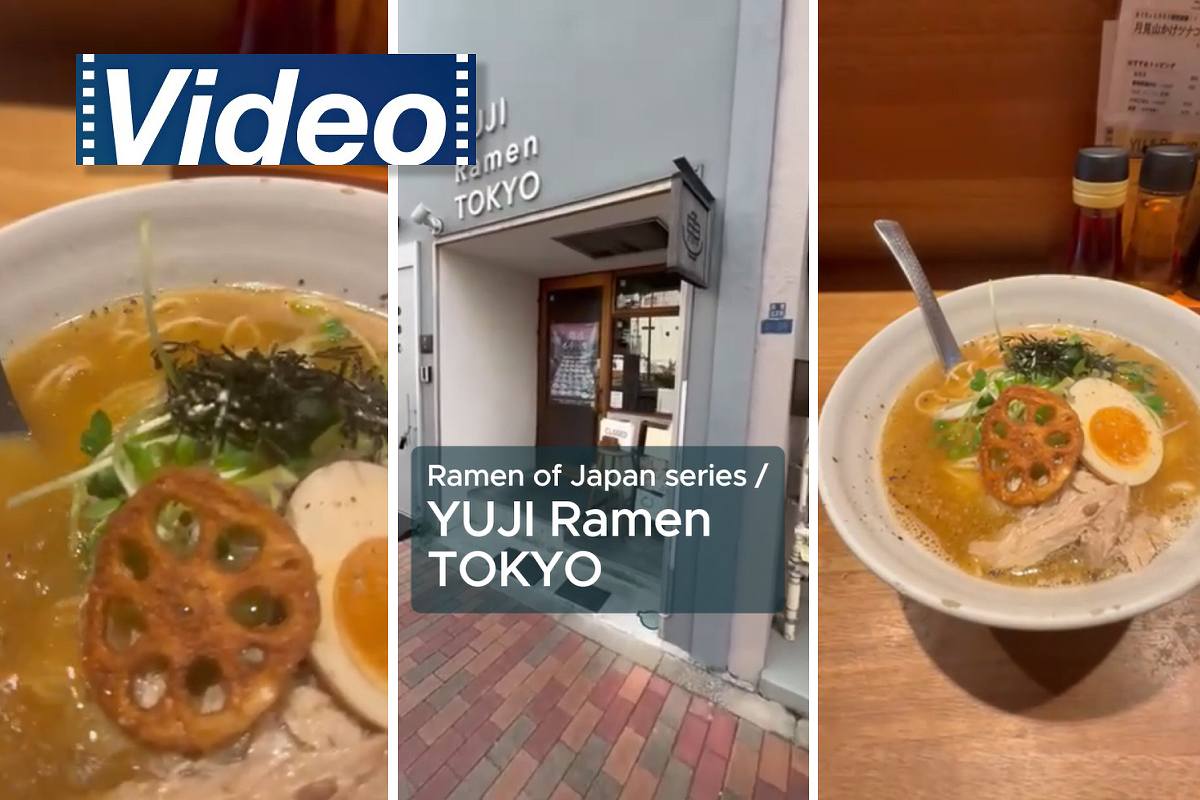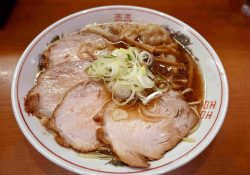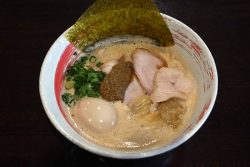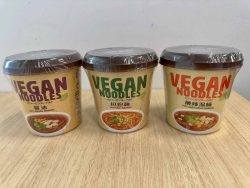YUJI Ramen TOKYO / Ramen Shop’s Unique ‘Tunakotsu’ Broth Made from Tuna Bones is Popular for its Rich, Light Taste
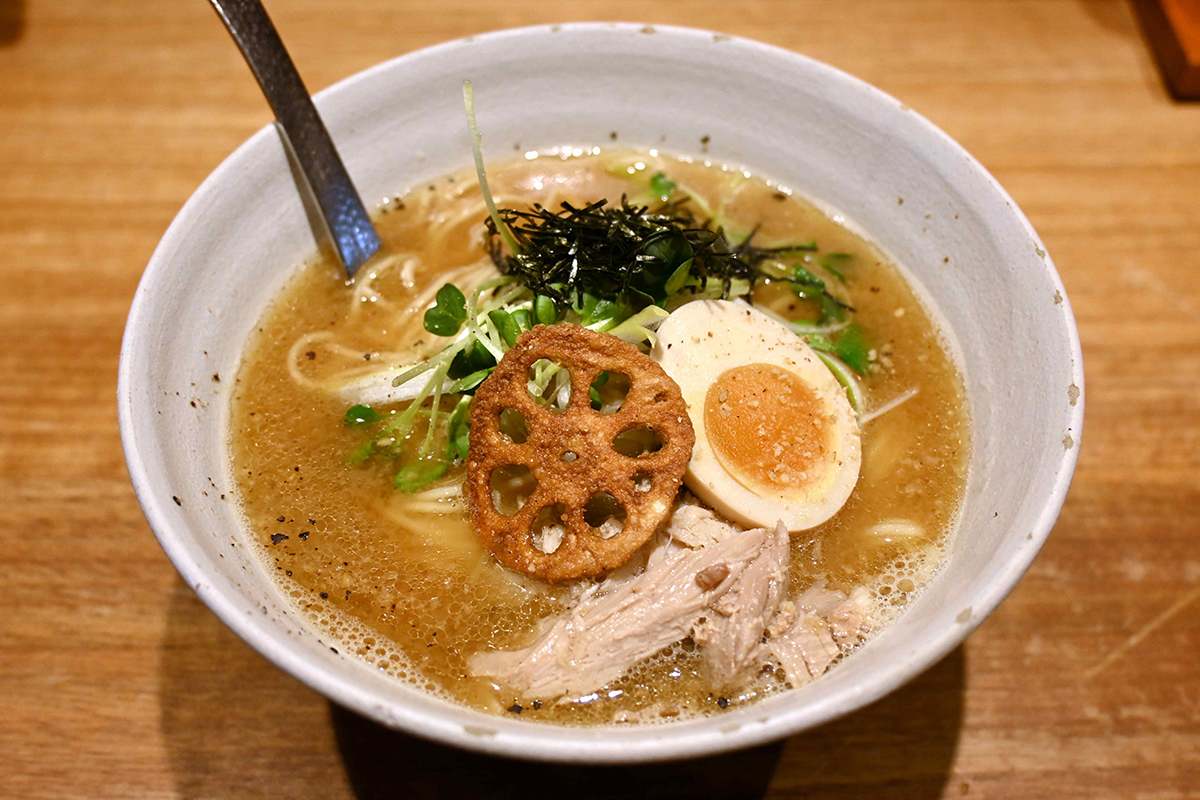
Tunakotsu ramen, ¥990, with broth made from tuna bones
15:31 JST, October 25, 2024
It is common for ramen to be served with “tonkotsu” broth, which is made from pig bones. But YUJI Ramen TOKYO, located in Kiyosumi, Tokyo, offers something different: ramen whose broth is made from tuna bones, called “tunakotsu.”
The broth tastes rich, but with a light aftertaste, and it is not heavy on your stomach, so it’s popular with women and people from other countries too. YUJI has a unique history: it originally opened in Brooklyn, New York, before being “reimported” to the Shin-Yokohama Ramen Museum, and then moving to its current location six years ago.
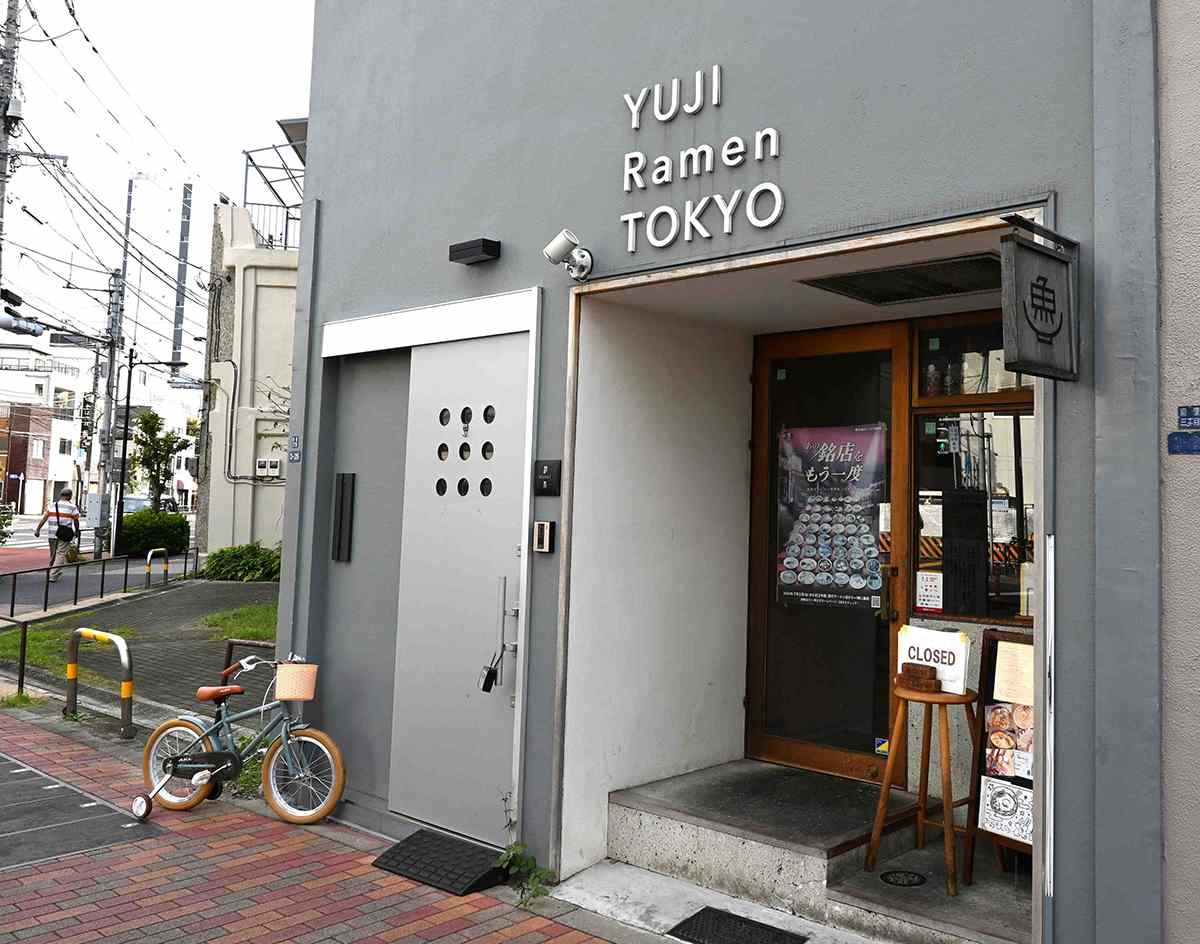
The shop’s stylish monotone exterior
The shop, which is located adjacent to Kiyosumi Gardens and is about a 3-minute walk from Kiyosumi-Shirakawa Station on the Oedo and Hanzomon subway lines, has a monotone exterior and white interior with wooden furnishings, giving it a cafe-like atmosphere. It blends in well with the many other stylish shops in the area.
I was greeted with a smile by the manager, Shinya Yamagishi, 34. There are none of the ticket machines typical of most ramen shops, because Yamagishi wants customers to sit down and take their time looking at the menu and enjoying their meal. “Even if it’s just for a moment, it creates communication with the customer. I want to cherish that,” he said. I looked at the menu and ordered the tunakotsu ramen, ¥990. Yamagishi, who runs the eatery by himself during the weekday, skillfully prepared my ramen.
-
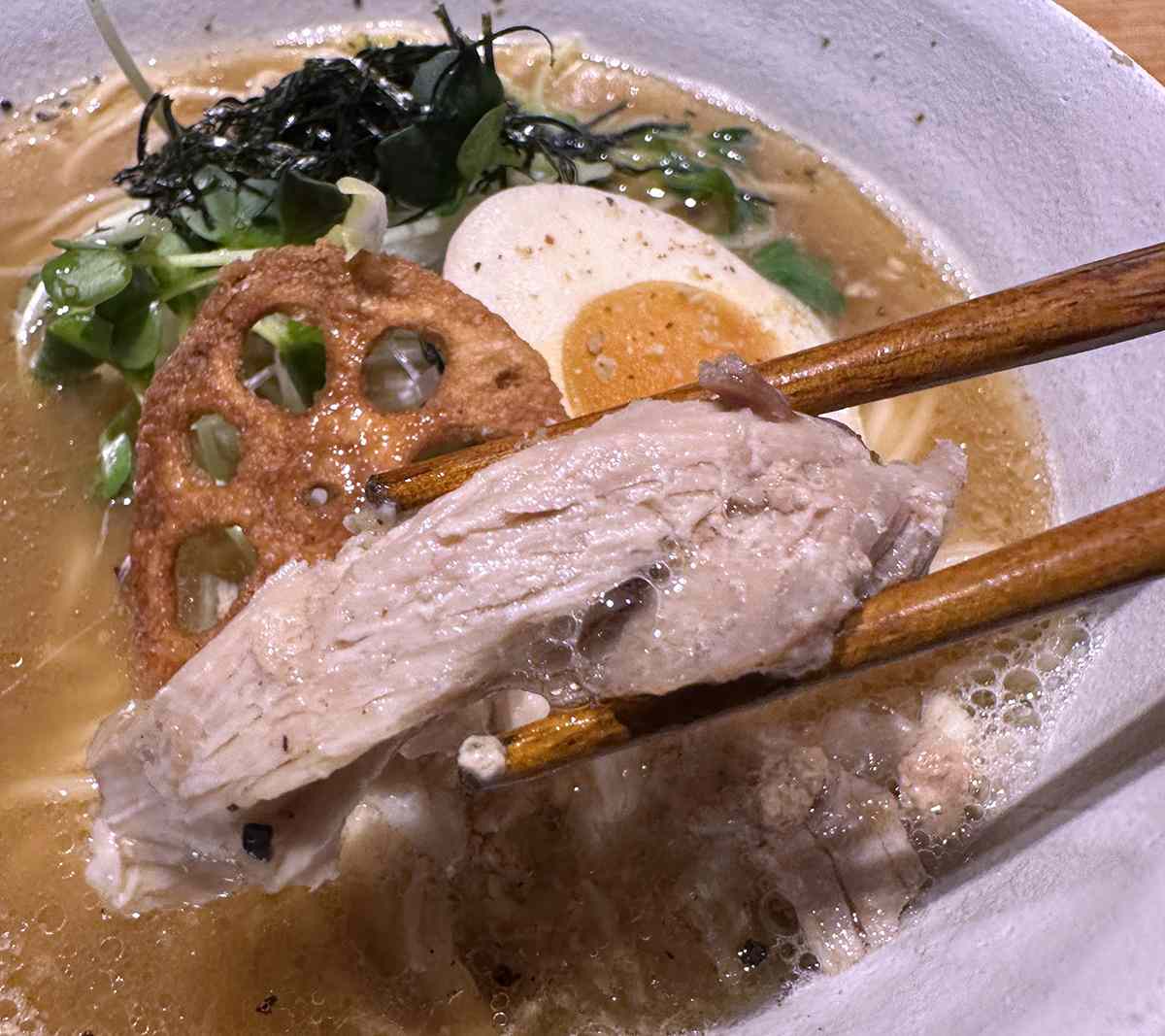
Soft and delicious tuna confit
-
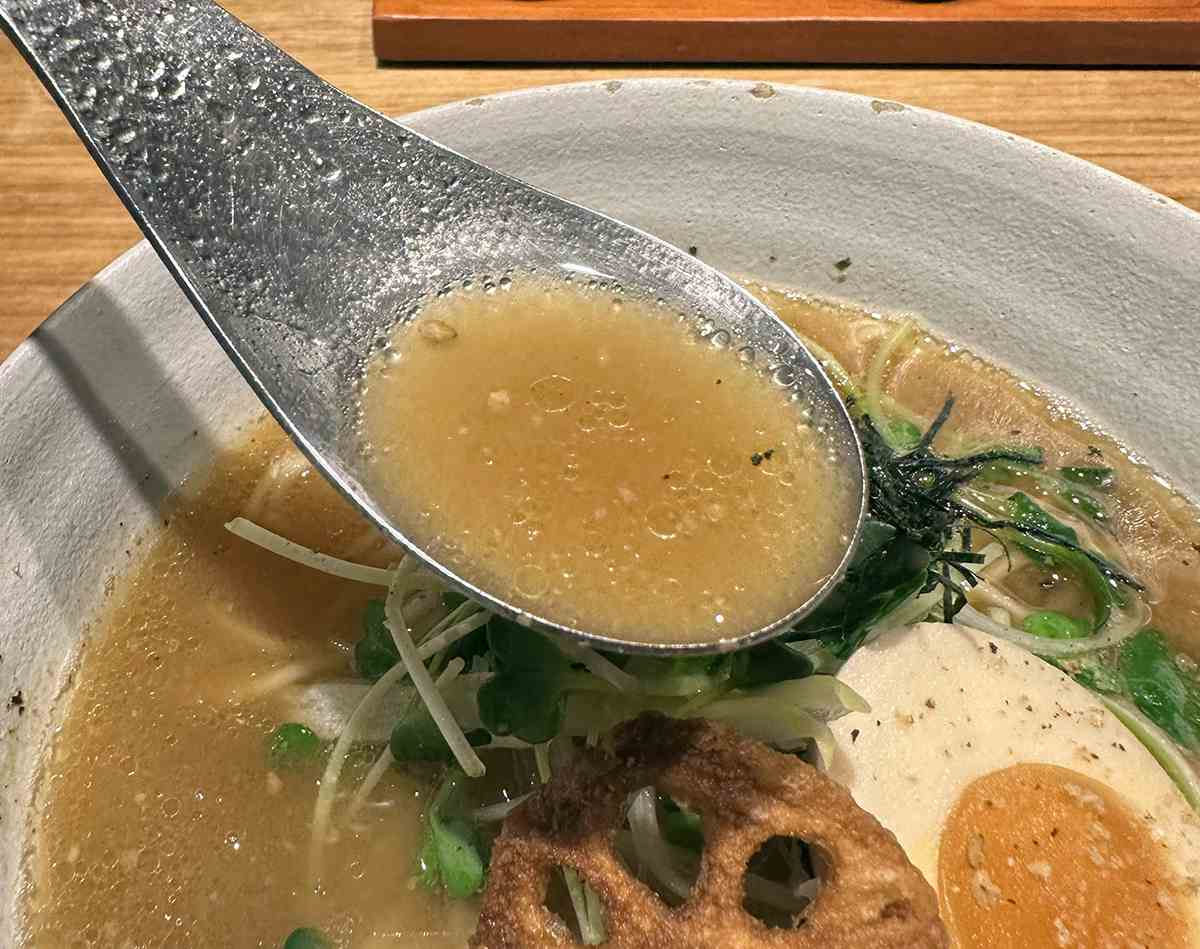
The soup is rich, yet with a light aftertaste.
-
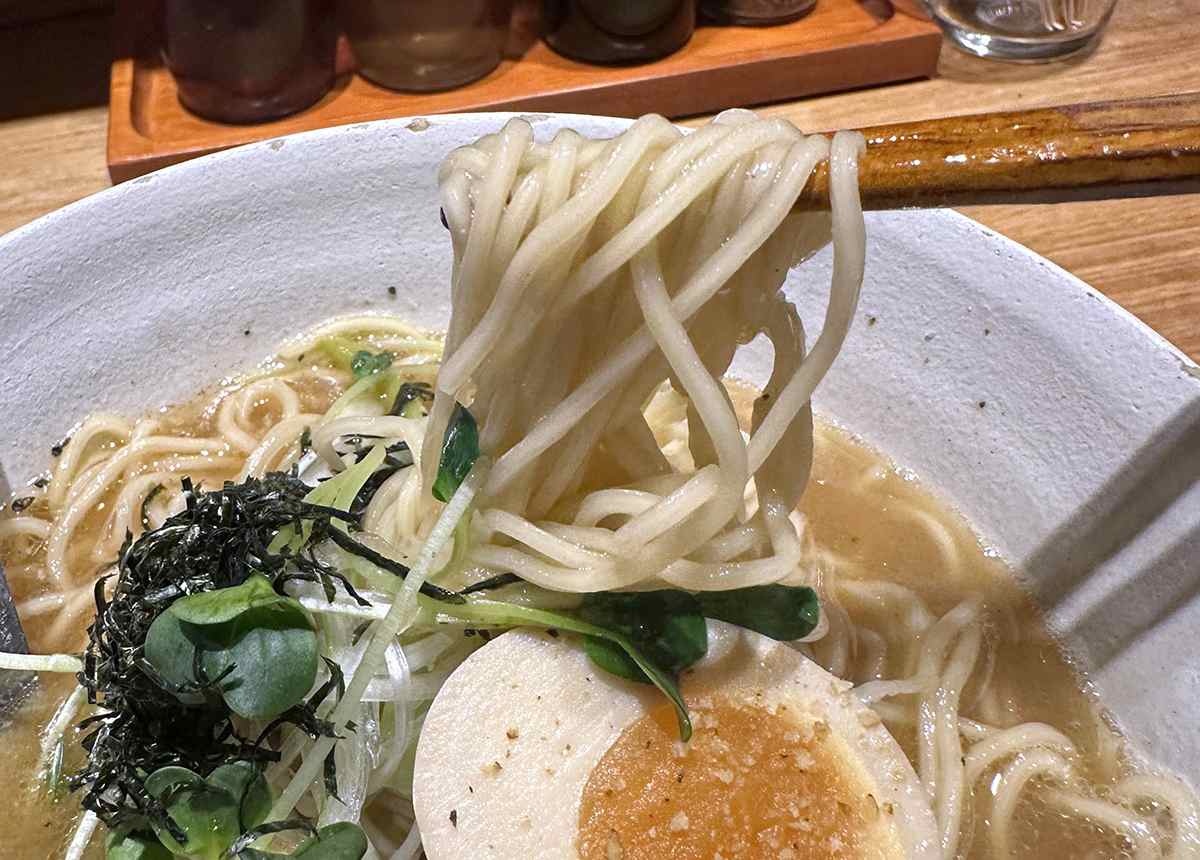
Broth clings well to the thin noodles.
-
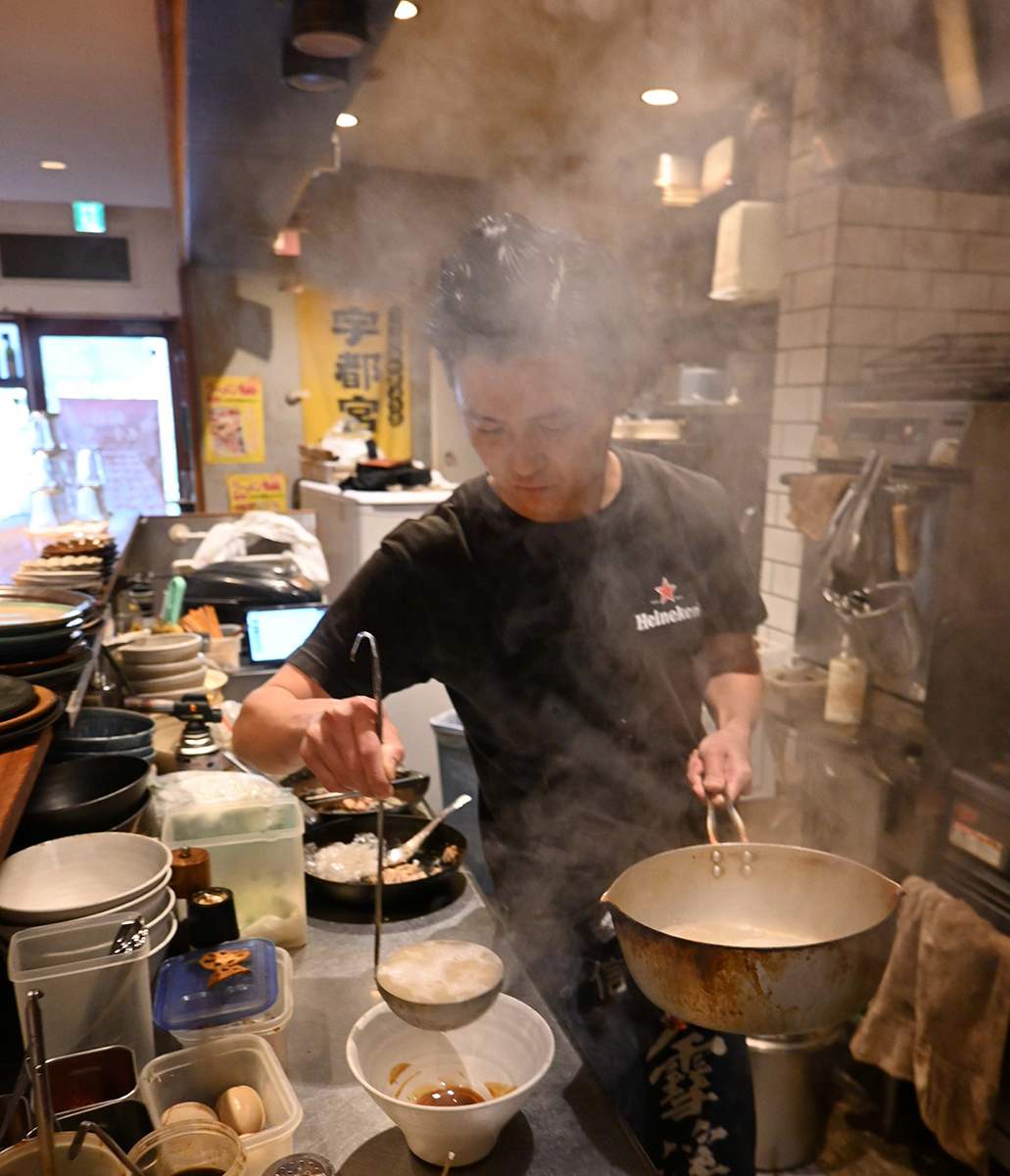
Yamagishi pours soup into a bowl.
-
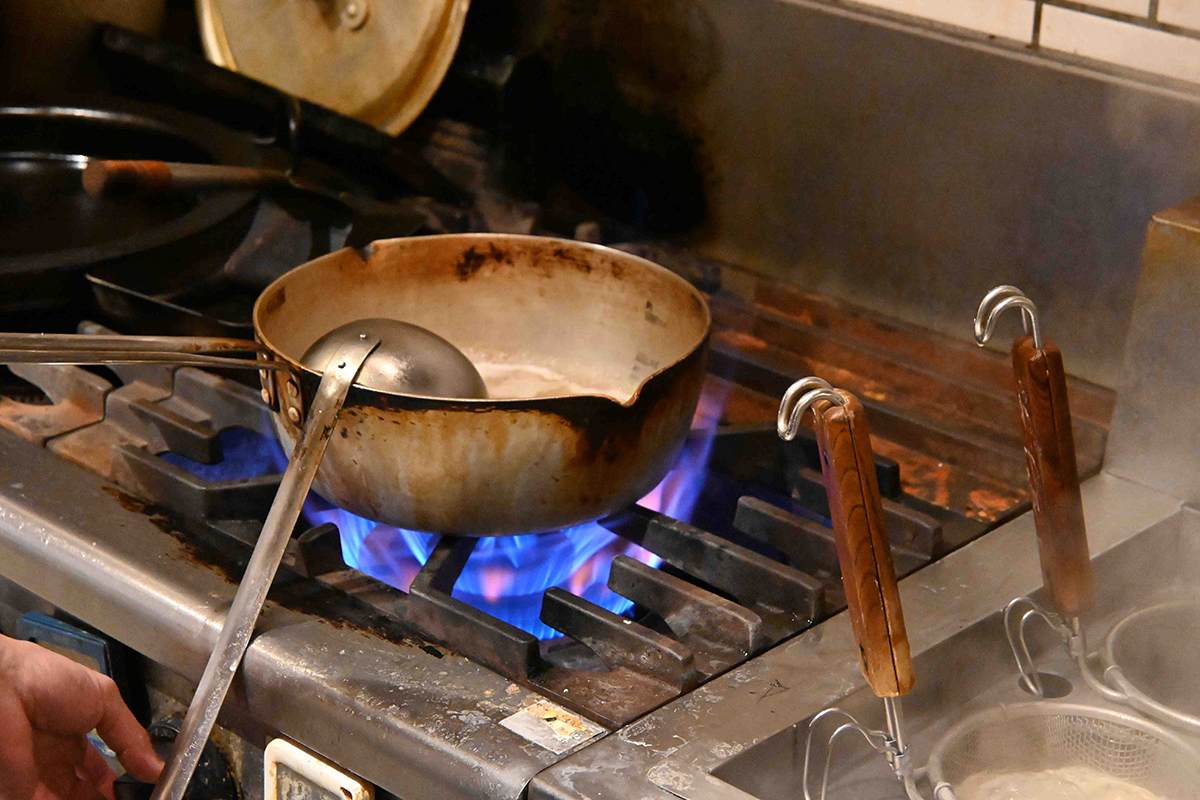
Heating the tuna broth
-
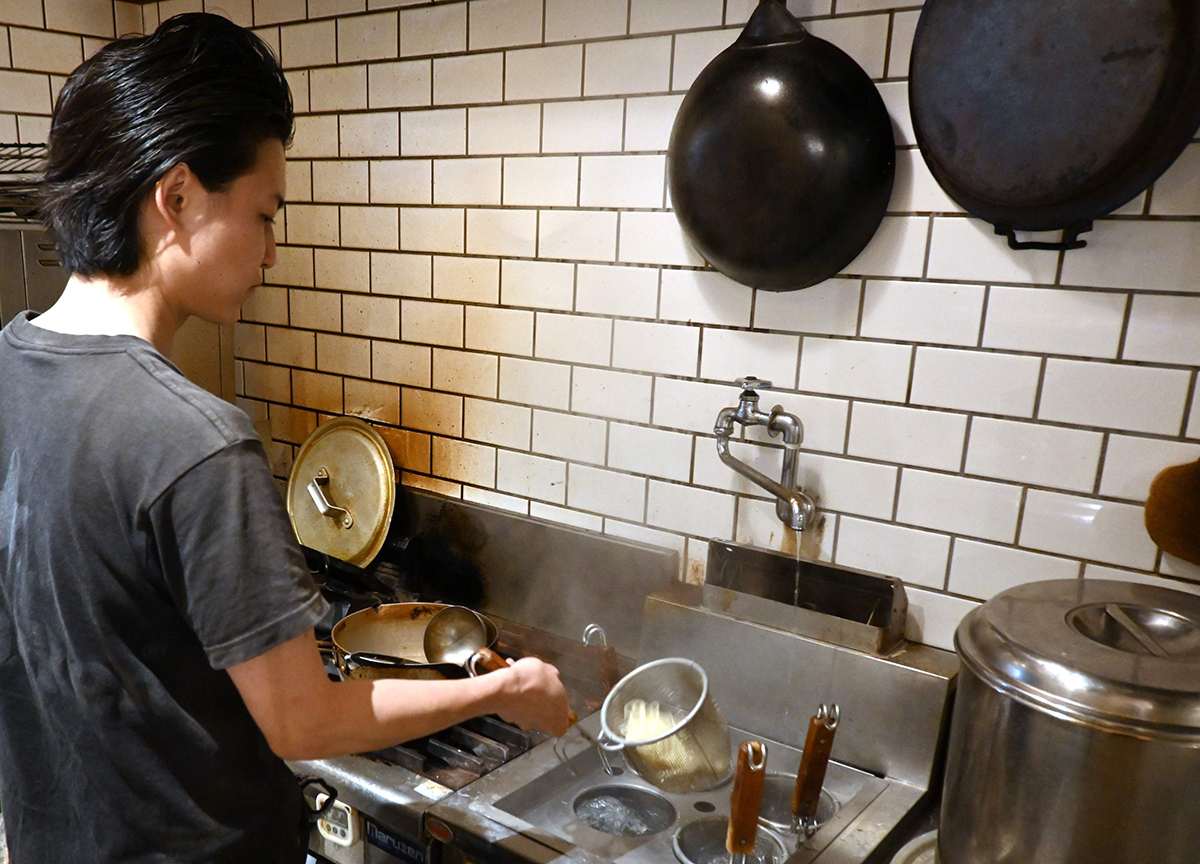
Yamagishi drains the hot water from the boiled noodles.
-
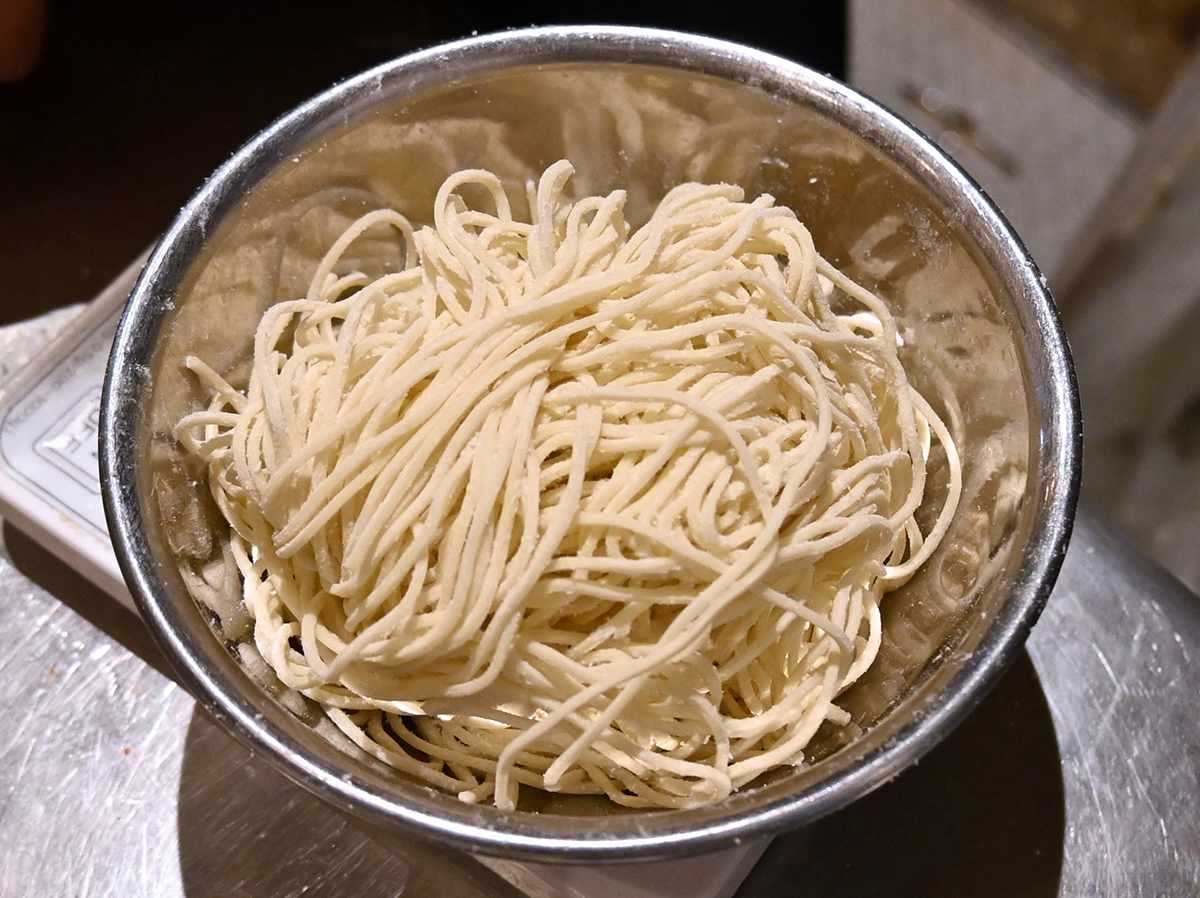
The noodles are thin and crispy, as is currently popular, and are made with top-quality flour.
At first glance, the ramen didn’t look much different from regular ramen, except that the toppings were refreshingly light. However, I was surprised when I spooned up some of the soup and tasted it. It really was tuna, with a subtle aroma and quite a rich flavor. Despite this, it didn’t have a fishy smell, and the aftertaste was quite light. It could be said to have a perfect balance. Tuna contains docosahexaenoic acid (DHA) and other nutrients, so it seems to be good for your health too.
“It’s rich and light, yet it has a strong tuna broth flavor,” said Yamagishi. “I also use tuna oil and vegetable oil for the finishing touches.” The thin noodles, which go well with the broth, are firm and crunchy, as is currently popular, and are boiled slightly hard before being served. The noodles are delicious and mixed well with the soup.
The main feature of the toppings is that customers can choose either tuna confit or homemade seared bacon when ordering. The tuna confit I had this time was soft and delicious, and it really made the bowl a feast of tuna. Other toppings include vegetables such as Japanese mustard spinach, spring onions and myoga ginger, a soft-boiled egg, nori seaweed and lotus root chips for an accent.
-
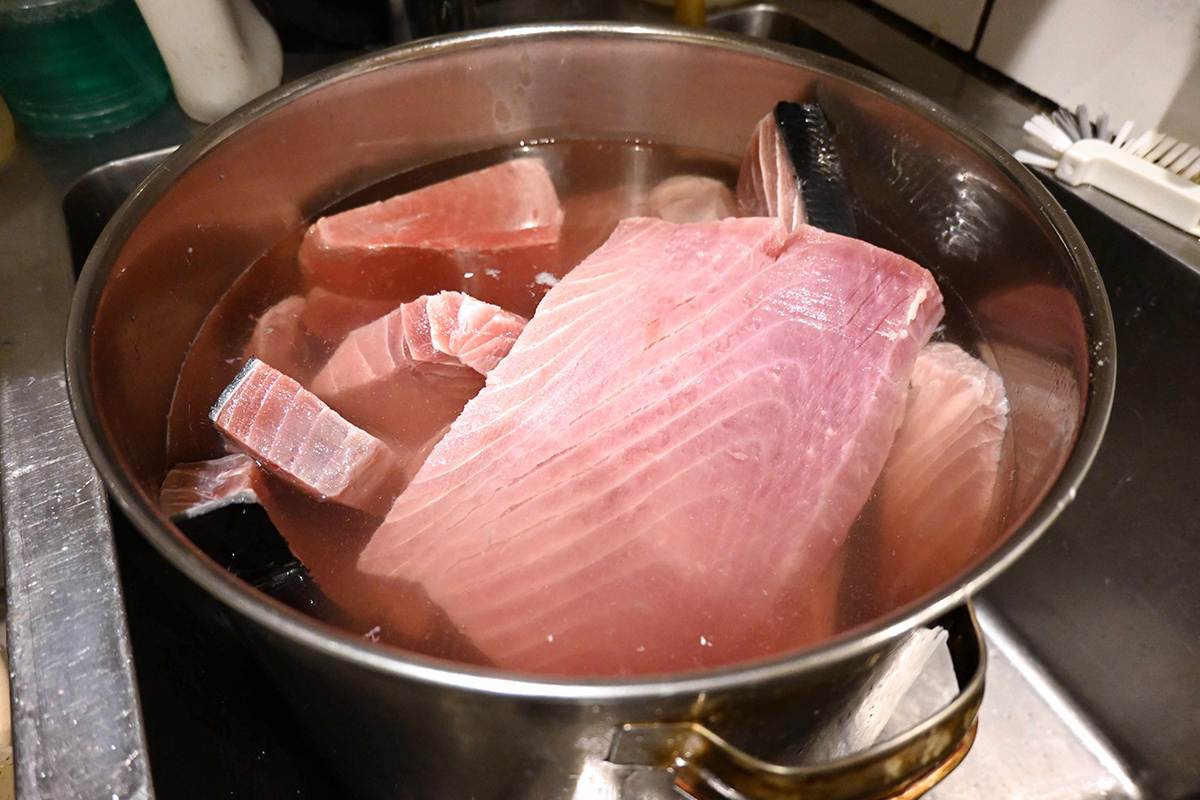
The tuna meat is prepared for confit. It looks like it would be delicious even as sashimi.
-
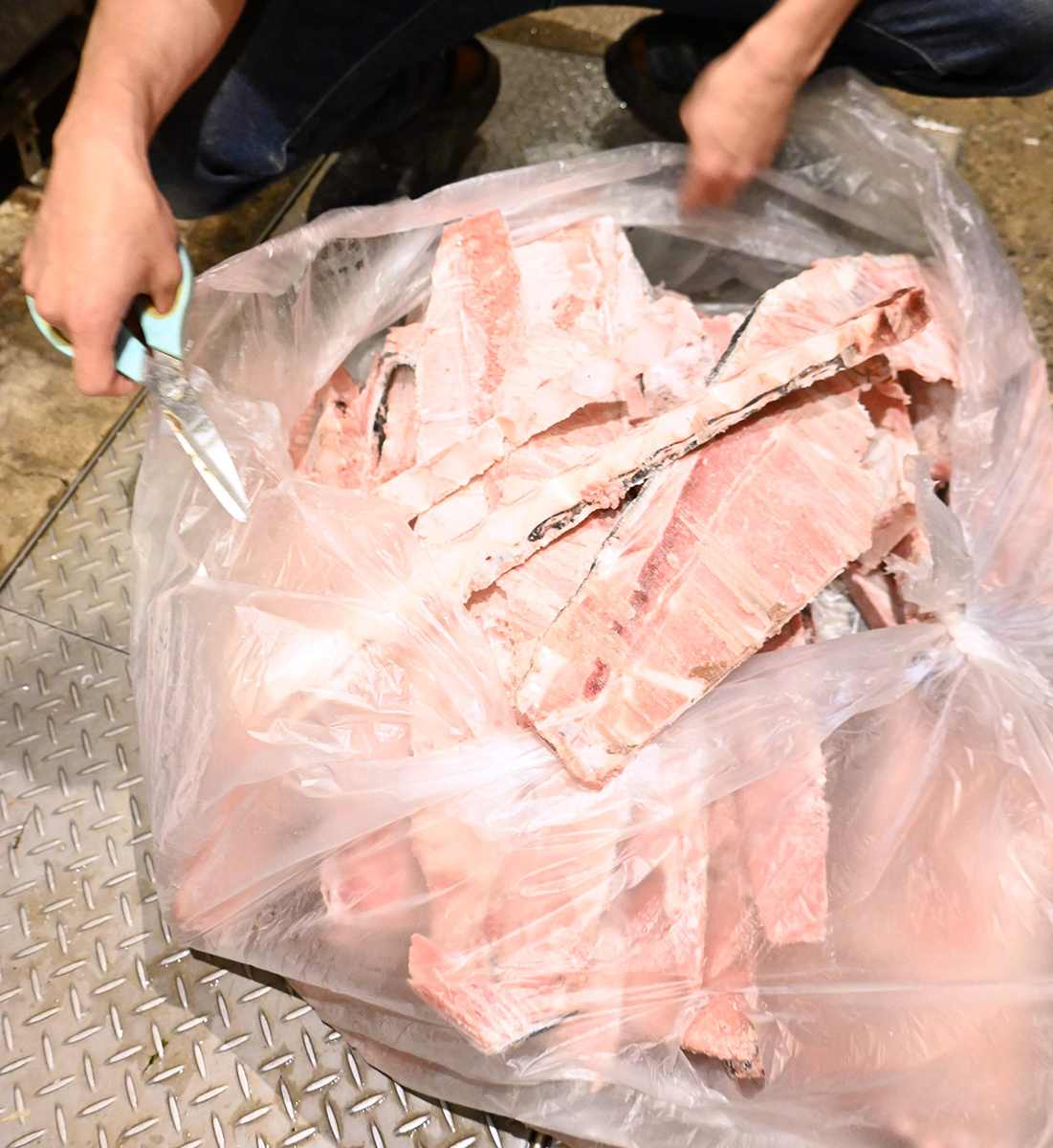
Frozen tuna bones for making broth
Yamagishi showed me a large bag of tuna bones from the freezer in the back of the shop, saying, “I make broth from these every day.” He took out a lot of tuna bones with delicious-looking meat around them. “I wash and clean them, grill them and then cook them in a stockpot,” said Yamagishi. This preliminary preparation suppresses the fishy smell, which disappears entirely with the addition of leeks, onions, carrots, garlic, etc. And so a delicious soup is made.
-
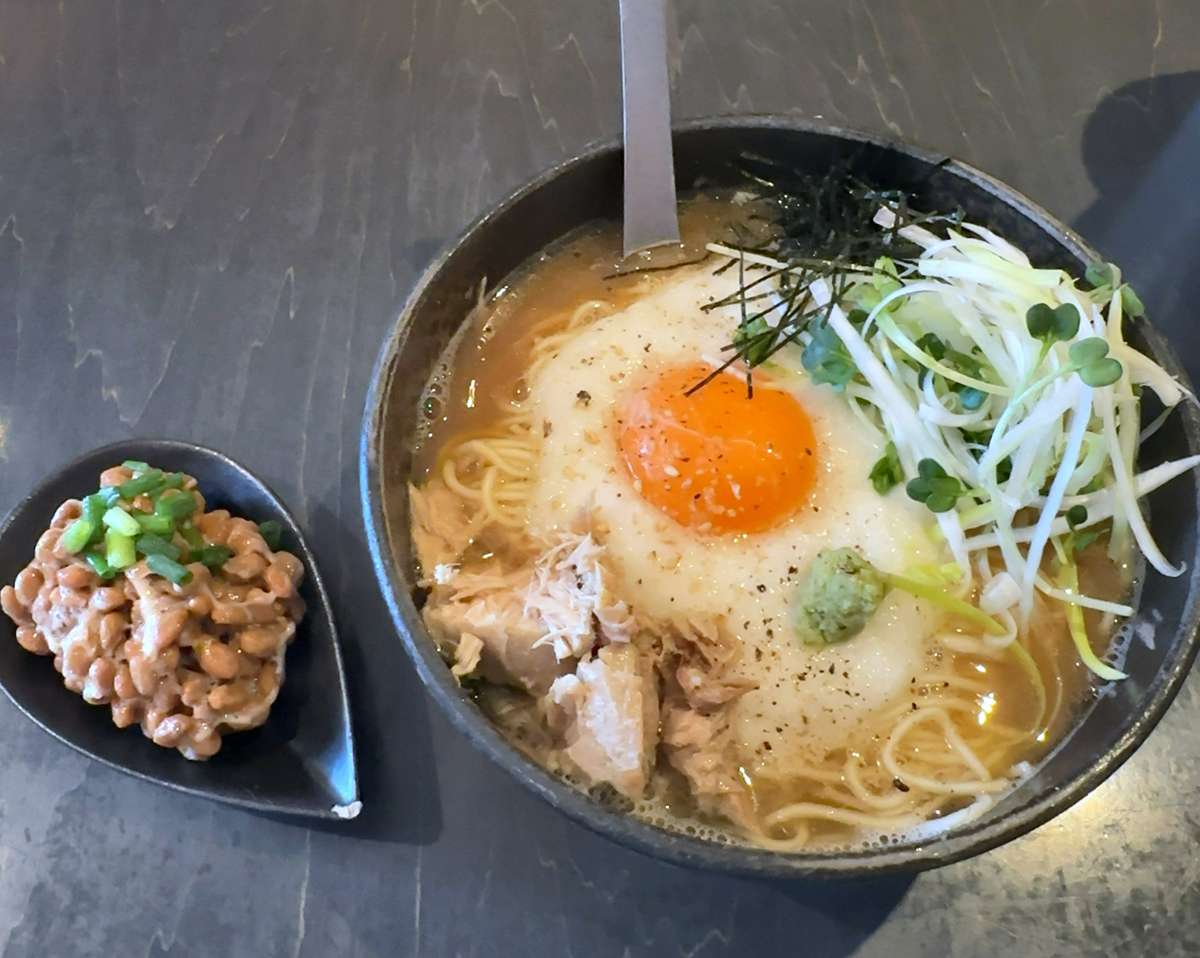
Tsukimi yamakake tunakotsu ramen, ¥1,080, a limited-time autumn menu item
-
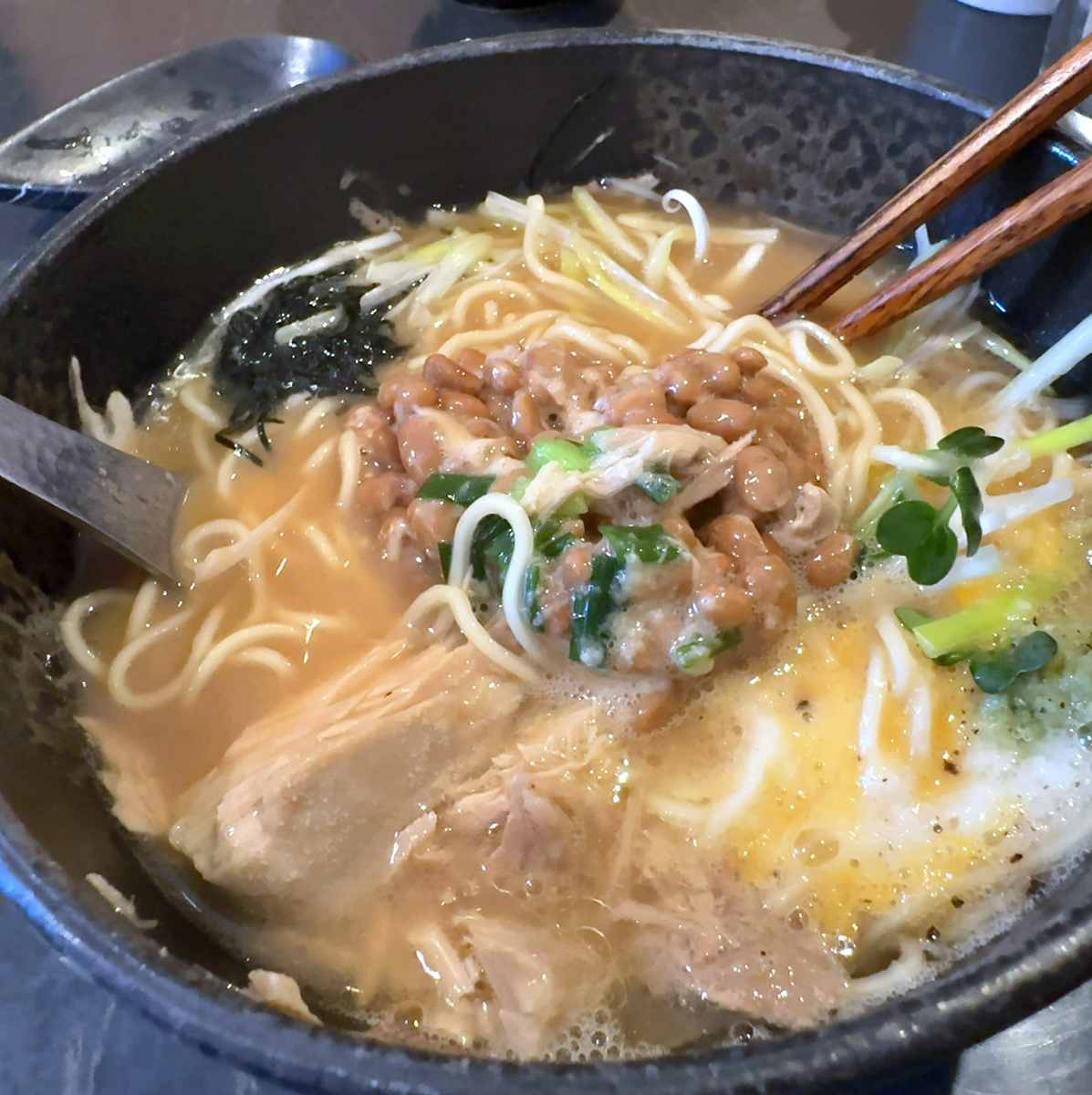
After eating half of my ramen, I added the natto.
-
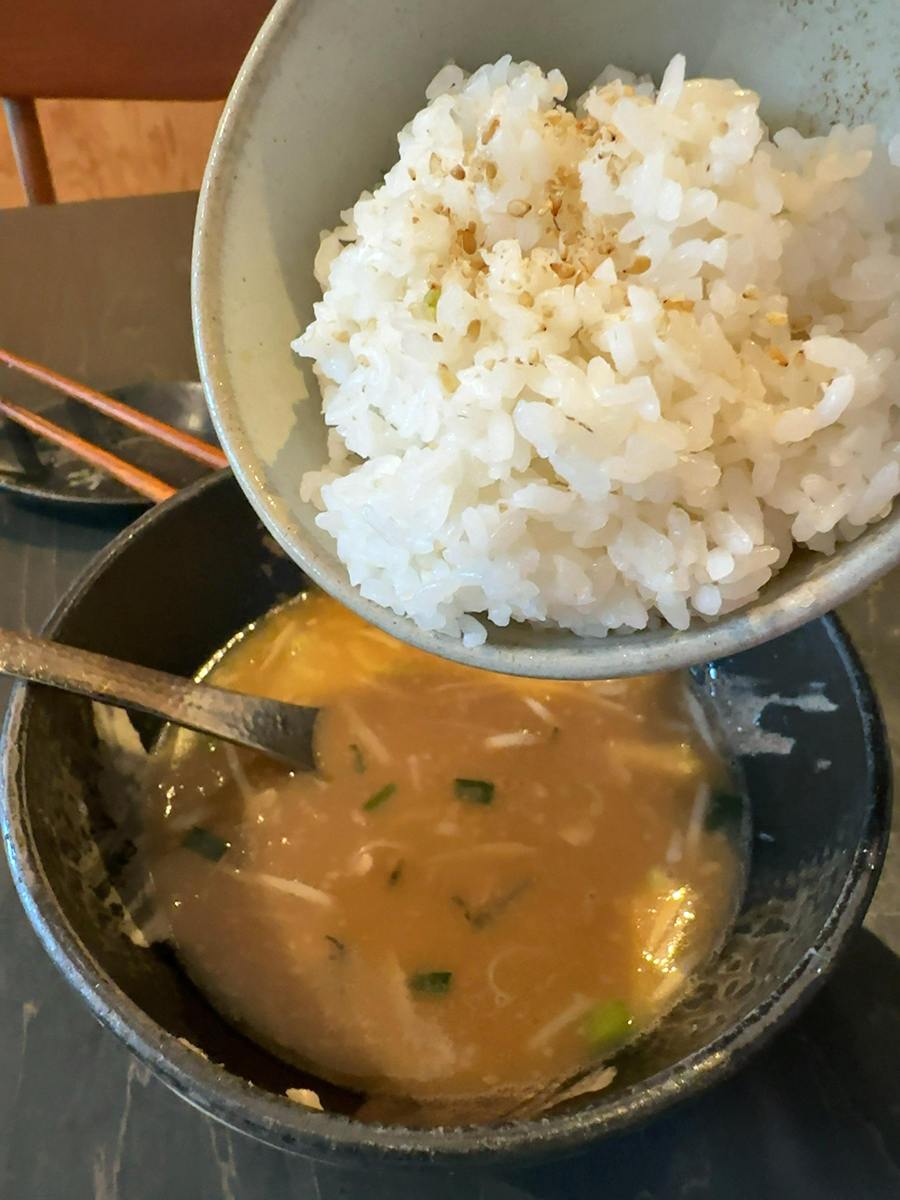
Finally, I added the rice to the remaining soup.
-
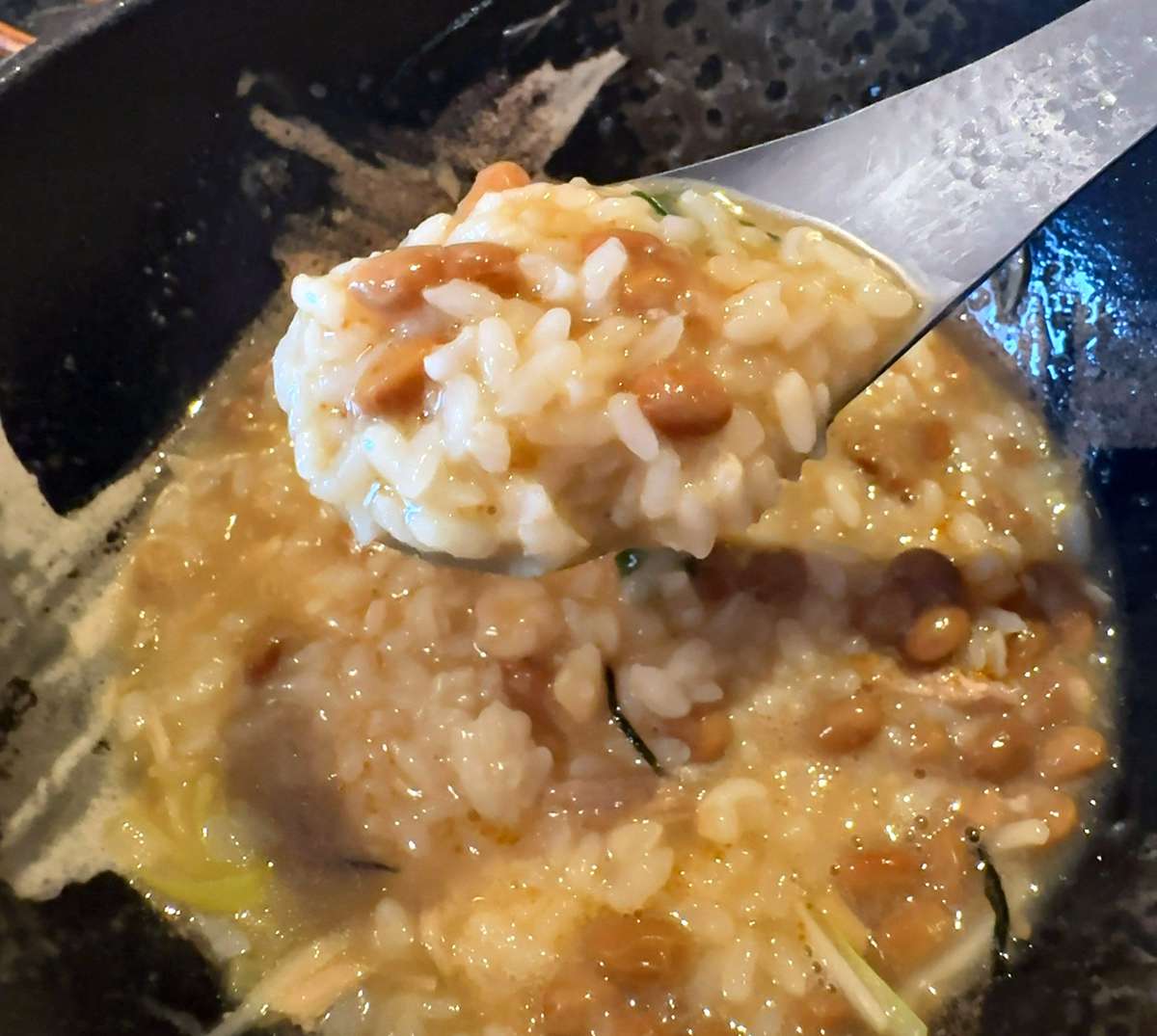
I ate it like a porridge.
-
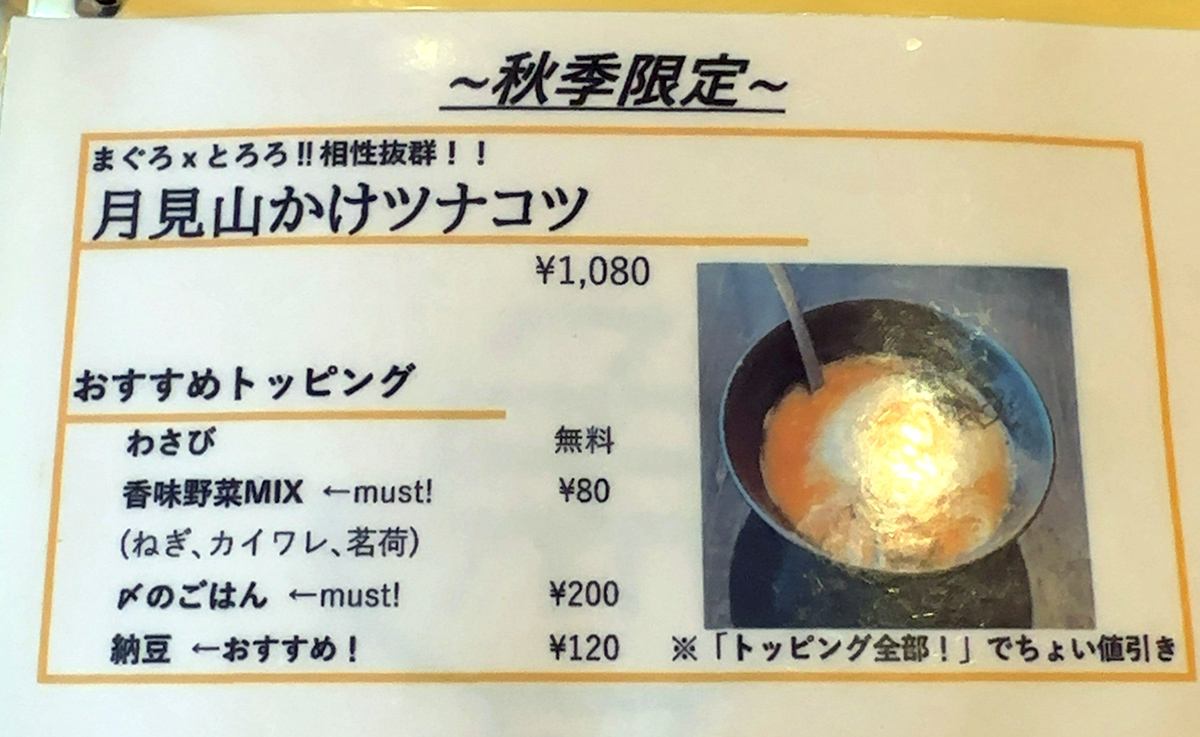
The menu listing for tsukimi yamakake tunakotsu ramen. A variety of additional toppings are available.
The tsukimi yamakake tunakotsu ramen, the ¥1,080 autumn-only dish I had when I visited this place as a customer, was also excellent. It is a Japanese-inspired dish with grated Japanese yam and egg on top, as well as a variety of additional toppings available. I ordered the “all the toppings” option, which meant natto, assorted herbs and vegetables, wasabi and rice. I added the natto while I was eating, and at the end of the meal, I dumped the rice into the leftover broth and ate it as if it were zosui rice porridge. I got full, but not enough to give me a stomachache.
Reimported from New York
-
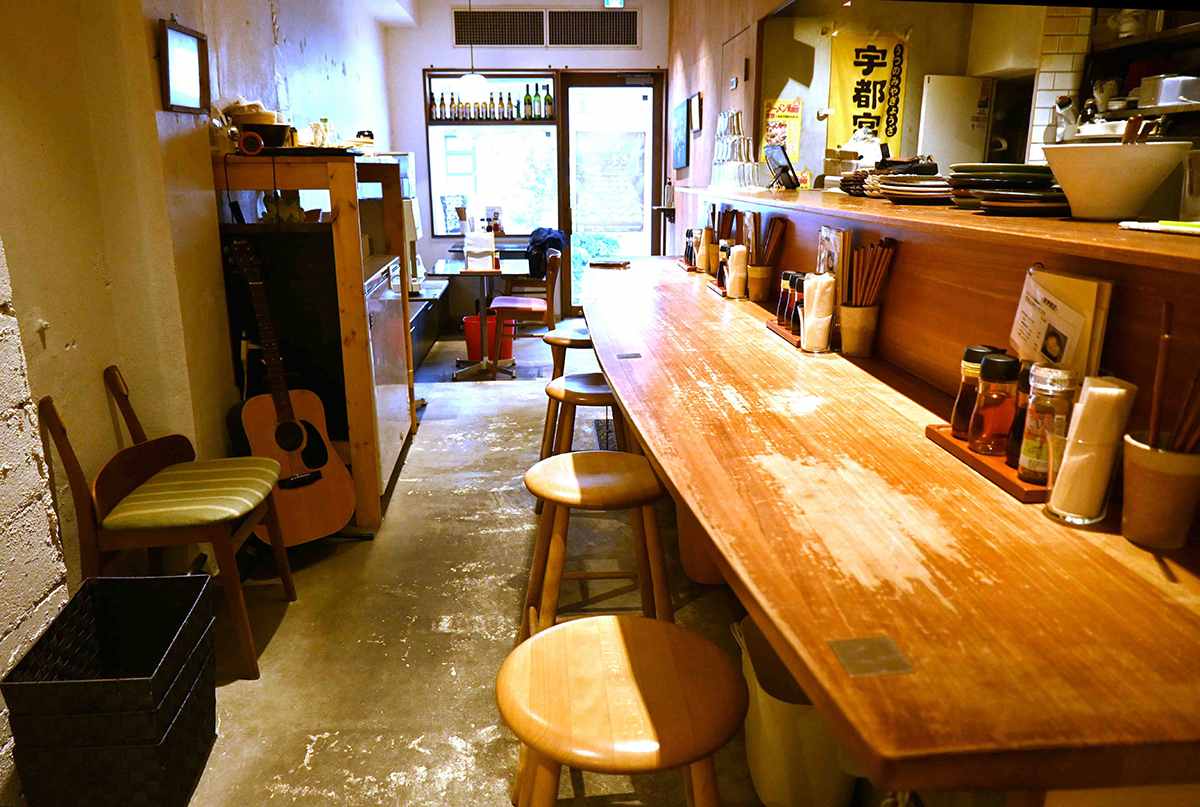
The interior of the shop has both counter and table seating.
-
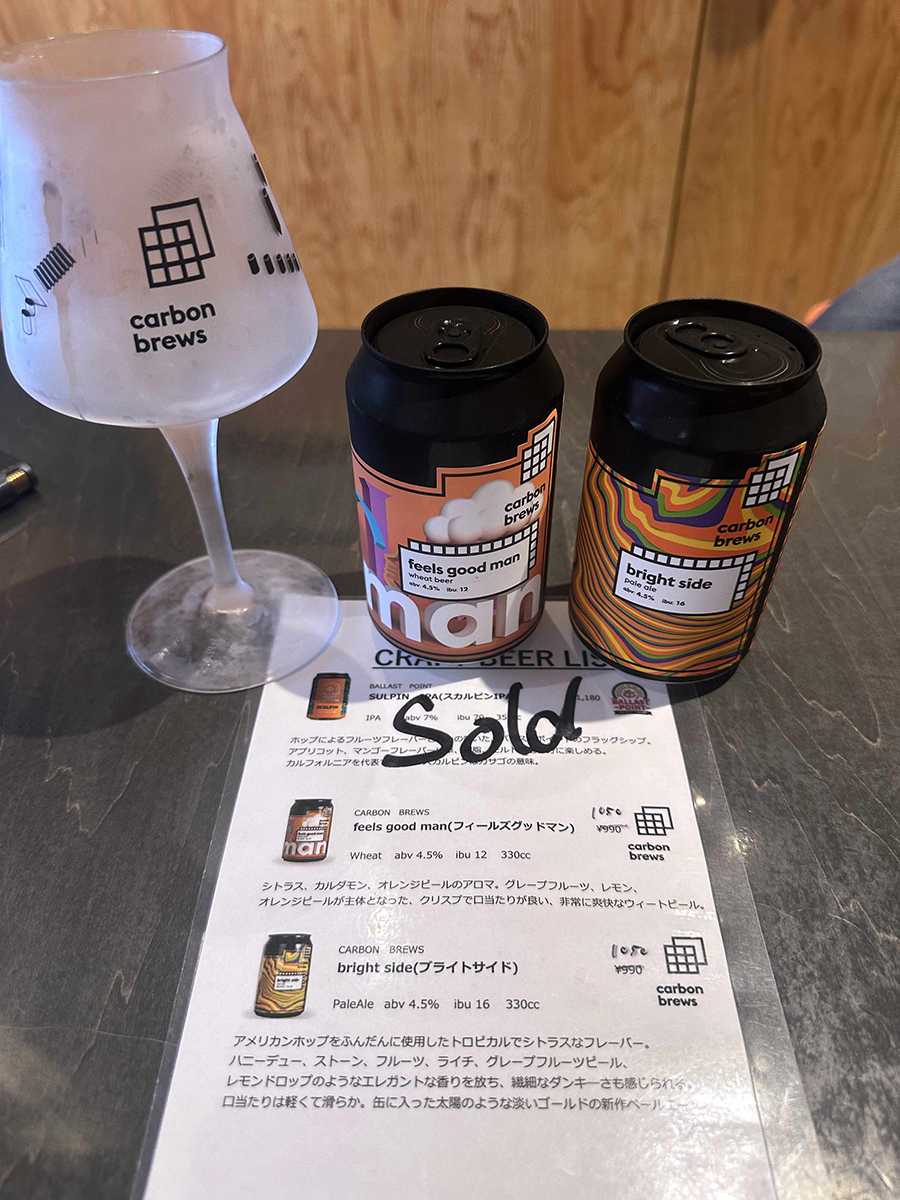
The shop serves Carbon Brews, a line of craft beers from Hong Kong.
YUJI was originally a popular local establishment opened by a Japanese man who had worked as a tuna wholesaler in New York. He was approached by the Shin-Yokohama Ramen Museum in Yokohama, and after operating the eatery for several years as a “reimported” ramen shop there, he relocated and opened the present shop in Kiyosumi, Tokyo, in October 2018. The current owner bought the shop the following year and has been running it ever since.
Five years ago, around the time of the change of ownership, Yamagishi trained for a month under the first owner, who taught him how to make tunakotsu ramen.
From bartender to ramen shop manager
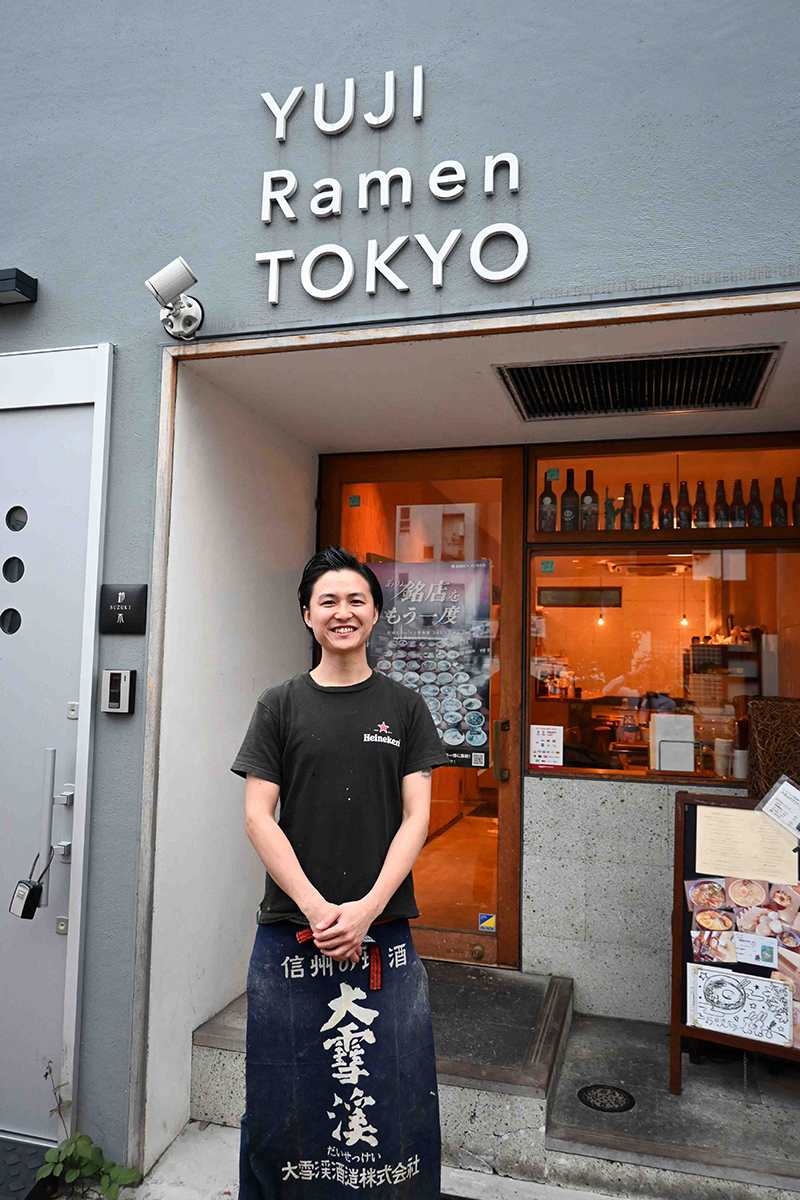
Manager Shinya Yamagishi
“After graduating from college, I worked as a bartender,” says Yamagishi. His family in Nagano earned supplementary income through farming, and he went to college at Tokyo University of Agriculture. In fact, the current owner was a classmate and good friend of his from college, and they had talked since their college days about doing something together someday. This became a reality when Yamagishi quit his bartending job to manage YUJI.
Shortly after he joined, the COVID-19 pandemic began, making business difficult for a while, but Yamagishi managed to survive with the support of local fans. Last August, the Shin-Yokohama Ramen Museum asked him to run a limited-time shop there, so he closed YUJI for about a month to operate it. This was a first for Yamagishi. Working in a place frequented by ramen lovers was “a very valuable experience,” he recalls.
Yamagishi comes up with limited menu items derived from tunakotsu ramen. Another popular menu item at the shop is mazemen, a dish whose ingredients are mixed together without broth. His mazemen is served with extra-thick whole wheat noodles, sweet homemade soy sauce and vegetable oil. On weekends, the shop is operated by two persons at lunch time because of the long lines.
About his goals, Yamagishi said, “I want to try my hand at a variety of things in the food and drink industry, not just a ramen shop, but also beer breweries and other types of shops.”

YUJI Ramen TOKYO
3-3-25 Kiyosumi, Koto Ward, Tokyo. Lunch time: 11:30 a.m. to 2:30 p.m. Weekday evenings: 5:30 p.m. to 9:30 p.m. (last order). Weekends and holidays evenings: 5:30 p.m. to 8:30 p.m. (last order). The shop closes when all soup is gone on any day. Closed on Mondays. When Monday is a national holiday, closed the following Tuesday.
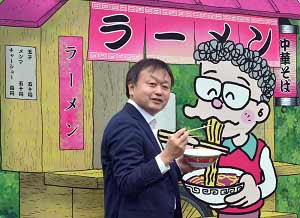
Futoshi Mori, Japan News Senior Writer
Food is a passion. It’s a serious battle for both the cook and the diner. There are many ramen restaurants in Japan that have a tremendous passion for ramen and I’d like to introduce to you some of these passionate establishments, making the best of my experience of enjoying cuisine from both Japan and around the world.
Japanese version
【ラーメンは芸術だ!】NYから逆輸入、マグロが利いた東京・清澄の「YUJI Ramen TOKYO」

Top Articles in JN Specialities
-

Tokyo University of the Arts Now Offering Free Guided Tour of New Storage Building, Completed in 2024
-

Exhibition Shows Keene’s Interactions with Showa-Era Writers in Tokyo, Features Newspaper Columns, Related Materials
-

The Japan News / Weekly Edition (1/30-2/5)
-

Step Back in Time at Historical Estate Renovated into a Commercial Complex in Tokyo
-

Prevent Accidents When Removing Snow from Roofs; Always Use Proper Gear and Follow Safety Precautions
JN ACCESS RANKING
-

Japan PM Takaichi’s Cabinet Resigns en Masse
-

Japan Institute to Use Domestic Commercial Optical Lattice Clock to Set Japan Standard Time
-

Israeli Ambassador to Japan Speaks about Japan’s Role in the Reconstruction of Gaza
-

Man Infected with Measles May Have Come in Contact with Many People in Tokyo, Went to Store, Restaurant Around When Symptoms Emerged
-

Prudential Life Insurance Plans to Fully Compensate for Damages Caused by Fraudulent Actions Without Waiting for Third-Party Committee Review
